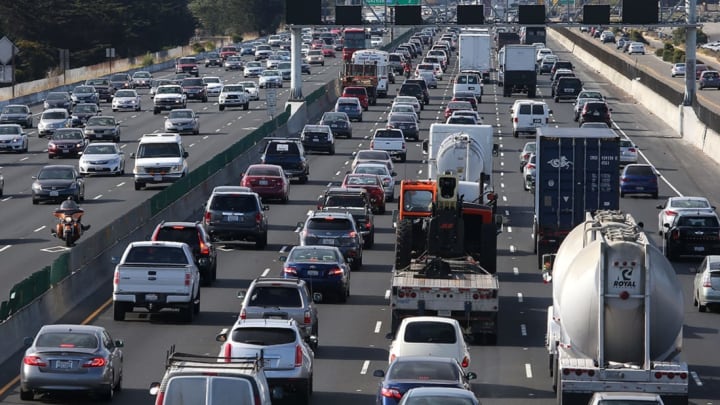California Moves to Turn Freeway Traffic Into Electricity

California legislators are looking to put the state’s notorious car traffic to good use. State officials recently approved a plan to generate electricity from vibrations produced by cars driving down freeways, according to the San Francisco Chronicle.
The California Energy Commission recently voted to put $2.3 million into two piezoelectricity projects, which convert pressure into power. One pilot will test a 200-foot-long piece of asphalt on UC-Merced’s campus, while the other experiment will be built by the San Jose green technology company Pyro-E. The company's technology is expected to generate enough power to supply 5000 homes using less than a half-mile of piezoelectric highway.
The idea is that highways could produce energy mechanically, much like a watch runs on the mechanical energy of a spring. Stacks of the inch-long devices would be installed under roads, moving slightly each time a car rolled over them. The high volume of cars passing above each day would in theory turn that little bit of movement into a significant source of energy. The same idea has been floated for wood flooring, sidewalks, and dance floors.
The technology is still in its early stages, though, and there’s no guarantee that California’s roads will be generating power anytime soon. (If it was more advanced, you would have seen a lot more electricity-generating dance floors, after all.)
If any state is likely to implement these unusual sources of power, though, it would be California, which is already a leader in sustainable energy in the U.S. In one recent milestone, California’s solar panels produced 40 percent of the state’s power on one day in March, though it was only for a few hours. The state plans to get 50 percent of its electricity from renewables by 2030 [PDF]. If it can turn L.A. and San Francisco gridlock into power, it’ll reach that goal in a heartbeat.
[h/t San Francisco Chronicle]